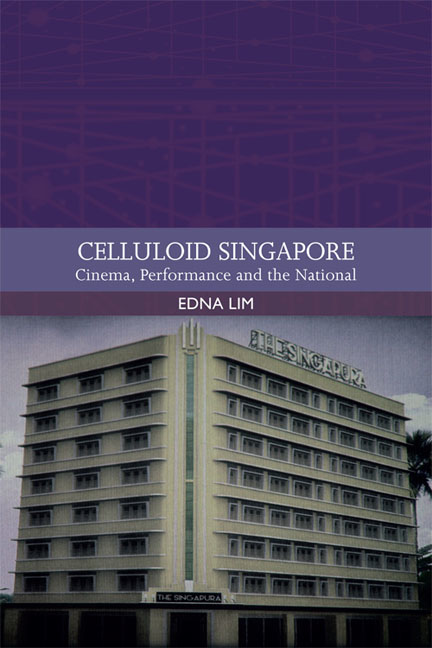Book contents
- Frontmatter
- Contents
- List of Figures
- Acknowledgements
- Traditions in World Cinema
- 1 Introduction
- 2 Merdeka!: Merger, Separation and a Transnational Golden Age
- 3 Influence, Hybridity and How the Past is a Foreign Country
- 4 Nation-building, a Nun and a Bionic Boy
- 5 Not so Foreign: the Case of Saint Jack
- 6 One People, One Nation, One Singapore
- 7 Revival Cinema: ‘Other’ Singaporeans in (An)other Singapore
- 8 Singapore Cinema in Singapore
- Works Cited
- Index
8 - Singapore Cinema in Singapore
Published online by Cambridge University Press: 11 November 2020
- Frontmatter
- Contents
- List of Figures
- Acknowledgements
- Traditions in World Cinema
- 1 Introduction
- 2 Merdeka!: Merger, Separation and a Transnational Golden Age
- 3 Influence, Hybridity and How the Past is a Foreign Country
- 4 Nation-building, a Nun and a Bionic Boy
- 5 Not so Foreign: the Case of Saint Jack
- 6 One People, One Nation, One Singapore
- 7 Revival Cinema: ‘Other’ Singaporeans in (An)other Singapore
- 8 Singapore Cinema in Singapore
- Works Cited
- Index
Summary
In 2013, Anthony Chen's Ilo Ilo made waves for being the first Singapore film to win the Caméra d’Or at the Cannes Film Festival. Among other awards, it also bagged the Best Supporting Actress, Best Original Screenplay, Best Picture and Best Director prizes at the Golden Horse Awards, beating such heavyweights as Wong Kar Wai (Grandmaster), Johnnie To (Drug War), Jia Zhangke (A Touch of Sin) and Tsai Mingliang (Stray Dogs). Chen was quickly hailed as the ‘man of the moment’ and ‘poster boy for Singapore cinema’, and the film's success was deemed ‘a significant turning point in Singapore films’ for giving the nation's cinema international visibility and attention.1 This was nearly twenty years after Eric Khoo's 12 Storeys first put Singapore on the map through the critical acclaim it received at Cannes and other festivals. Yet the differences between the two films are not as marked as the two decades may suggest. The ‘other’ Singaporean in (an)other Singapore that augured the revival is still very much alive in Ilo Ilo.
STILL TALKING ABOUT THE HEARTLAND
Like the films before it, Ilo Ilo is also about heartlanders. This time, the narrative revolves around the Lim family trying to get by during the Asian financial crisis in the 1990s. Teck is a tempered-glass salesman whose pitch is stymied by faulty samples and his inability to connect with English-speaking clients. He has substantial stock market losses and also loses his job, all of which he keeps from his wife, Hwee Leng, who struggles to cope with her pregnancy, housework and the threat of retrenchment. Their son, Jiale, is a mischievous boy who misbehaves to get attention and is strangely obsessed with keeping clippings and records of lottery draws. Added to this is the family's newly hired Filipino maid, Terry. Upon arrival, she has to surrender her passport to Hwee Leng, and Jiale is immediately hostile. He hates the idea of sharing his room with her and refuses to sit next to her at the dinner table. He also deliberately puts an unpaid item in her bag at the stationery store, causing alarms to sound when she runs out of the shop after him. She is caught and interrogated but only let off when a security tape reveals what Jiale has done. Unused to the Singaporean, heartland practice of hanging laundry on bamboo poles outside the flat, she drops one. As she rushes to retrieve it downstairs, she witnesses someone falling from the roof of the building.
- Type
- Chapter
- Information
- Celluloid SingaporeCinema, Performance and the National, pp. 165 - 185Publisher: Edinburgh University PressPrint publication year: 2018



